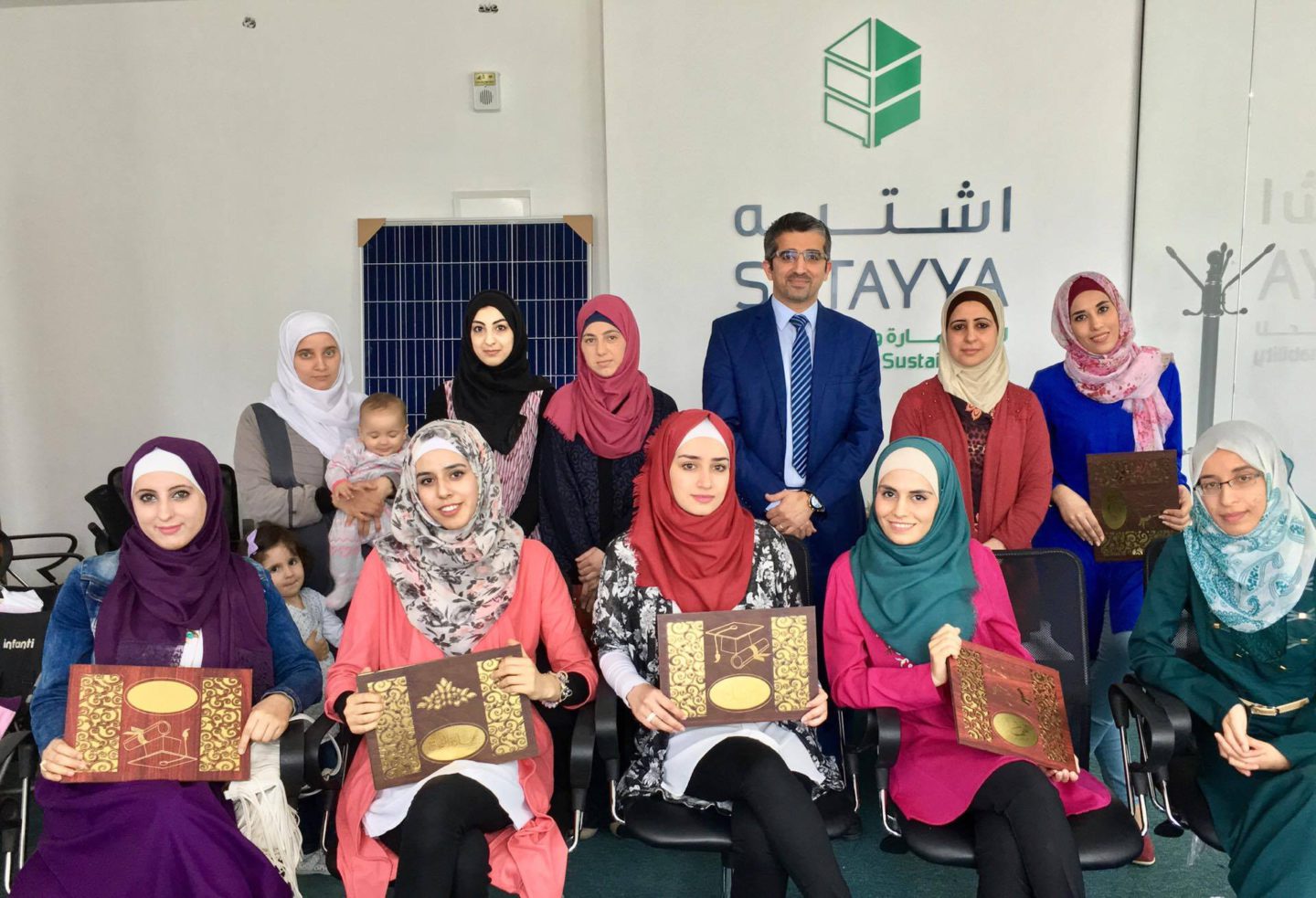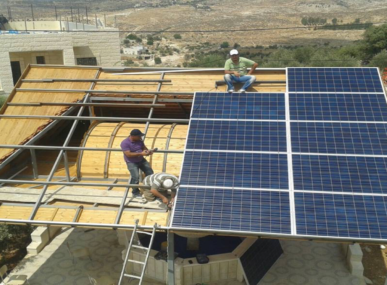The firm is Palestine’s first to focus on sustainable architecture and engineering, and Shtayya, the Founder and CEO, has been plotting its course since he was an architecture student at the country’s An-Najah National University.
Nablus, Palestine
Sustainable Construction
What does it take to create sustainable, beautiful communities where people can live, work, and play? That is a question Ahmad Shtayya often asks himself — and it is one he has set out to answer through his Palestinian firm, Shtayya Architecture & Sustainability.
From around the region and home:
Shtayya had been out of Palestine for a decade when he returned in 2016 to create Shtayya Architecture & Sustainability. Following graduation, work took him to the United Arab Emirates, Jordan, and Saudi Arabia, where he honed his architecture and project management skills and generated the finances needed to start a firm in Palestine.
Despite the decade away, sustainable architecture and engineering had yet to catch on in the country. “There is not much expertise in sustainability, in Palestine,” said Shtayya. “There are so many projects that need a consultant who specializes in the field, and this encouraged me to go back home and established my company.”
Though Shtayya established the country’s first registered sustainable firm, he never lost sight of his vision: “Besides buildings, our engineers are building life, and sustainable buildings give us a good and healthy one.”
Creating communities from scratch:
While more than half the world’s population lives in urban areas, Shtayya and his team builds them. He and his roster of 15 staff offer a cross-section of services, including engineering and design, urban planning, feasibility mapping, and the supervision of new, green projects.
A recent city building project took Shtayya to Saudi Arabia, where he is the project coordinator for a five million square meter community being built within the southwestern city of Abha. The community is designed from scratch to be a sustainable city, meaning it will host a centralized water treatment plant and be powered by renewable energy. Public transportation and green space will all be nearby.
Determined to shape Palestine’s sustainable architecture sector, Shtayya recently completed the design for the first green residential building in the country. The structure will be found in Shtayya’s home city of Nablus, and is expected to include 20 units. Once built, it will be Palestine’s first LEED Gold certified residential building. Not just an attractive building architecturally, the residence will include water treatment facilities, solar panels, heat and sound insulation, and a garage for bicycles — among other sustainable features.
New design, recycled materials:
A trademark of traditional Palestinian architecture is the use of rocks. It is a building material that is easily available in the country, though it is not a sustainable one. “Mountains are disappearing from our country because of such practice,” Shtayya explained.
As such, Shtayya uses sustainable construction materials in his firm’s designs. It did not take long before he was sourcing from around the Middle East and Europe. He found recycled plaster, and heat and water insulators in Turkey. In Italy, he discovered cobiax, hollow plastic boxes which are inserted into concrete slabs to create materials that are more environment-friendly, structurally sound, and lightweight. “We are replacing concrete with air,” Shtayya said of the cobiax. “It is a recycled material made entirely from plastic garbage.”

Shtayya is not having a problem convincing investors of the merits of sustainable architecture. Energy costs in the country are increasing steadily each year, and are already the highest in the Middle East. The country relies almost exclusively on imported electricity from Israel, Jordan, and Egypt — most of which is produced by unsustainable fossil fuels. As a result, energy efficient architecture has become all the more appealing.
“If we have green buildings in Palestine they will reduce the electricity costs and water bills,” Shtayya said. “That will decrease the demand for energy and we will, in turn, help our municipalities, government, and citizens.”
Solar for sustainability:
Shtayya also teams up with others in Palestine to create a more sustainable country, and he is the first person Fadi Bkirat approaches when he needs environmental feasibility studies done for his projects. Another member of the Switchers community, Bkirat is the CEO and Founder of Rack Tech, a business that manages solar energy projects across Palestine. Their most recent project together is a 5.7 megawatt solar power plant to be built in Hebron, a city in the southern West Bank.
“Ahmad is working in line with international standards,” explained Bkirat, pointing to his experience around the region and his LEED Green Associate certification under the U.S. Green Building Council. “The output of his studies can be used with big institutions such as the World Bank, so he’s doing a better bankable job.”
Another project of Shtayya’s is in the solar sector. His firm is working with World Vision on a project to install solar systems for 18 schools in the West Bank. Once fully operational, that solar project is expected to conserve 600 tons of carbon each year and benefit 30,000 students in the country.
Bringing sustainability training to Palestine:
An important part of Shtayya’s vision is educating the future generation of sustainable architects, in both Palestine and around the Gulf. In July 2016, he offered the country’s first LEED training course, and remains the only person in Palestine certified by U.S. Green Building Council to give these specialized workshops. Pushing for gender equality, Shtayya often handpicks more women for his training, acknowledging it is more difficult for them to get into the engineering field.
Fatima Qasrawi is an energy and environment engineer who went through four months of green building training with Shtayya. Sustainability training, she said, is important around the world, but particularly in Palestine. “Palestinians face many restrictions to open factories and import products and materials from the world. So, our responsibility is to work hard to build a sustainable life, which will lead us to reduce energy, lessen the dependency on other international companies in the energy and structural materials sector, and reduce greenhouse gases.” Shtayya’s training is playing a role in that.
“Teaching future generations about sustainability — that is my road map for the future,” Shtayya said of the monthly lectures and workshops he offers at local colleges.
And to him, that future is just as important as the buildings and cities he designs.
Website: http://shtayya.com/
Facebook: https://facebook.com/Shtayya
Twitter: @ahmad_shtaya
By Hilary Duff
Hilary is a journalist, photographer, and maker of things. She loves working with entrepreneurs to share their stories and has done so around the world. Find her online @hilarydufftz or www.hilaryduff.work.





